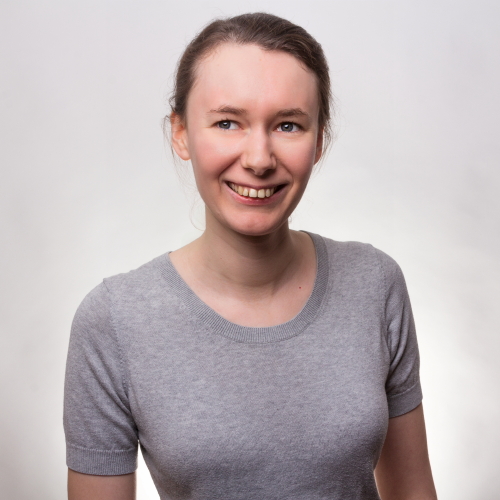
Good morning, everyone. It’s not often that I introduce a brand-new poet to you in this column; in fact, this may be the very first time.
Felicity Sheehy’s name was sent to me by one of her former teachers, who offered high praise, so I took a look for myself and found it to be well-deserved. Her chapbook (and only book so far), “Losing the Farm,” published this year, won the Munster Literature Centre’s international chapbook prize. Her poems have appeared in The New Republic, The Yale Review, Poetry Ireland Review, Narrative, Blackbird, Shenandoah, The Adroit Journal, Alaska Quarterly Review, Colorado Review The Common, Literary Matters, and elsewhere. A distinguished publication record indeed for one so young (full disclosure: I didn’t ask her age).
Her work has won an Academy of American Poets Prize the Jane Martin Prize, and scholarships to Bread Loaf, the Sewanee Writers’ Conference, and Community of Writers.
She has received additional prizes and support from Narrative Magazine, the Kenyon Review Writers’ Workshop, the York Poetry Prize, the Ledbury Poetry Festival, and the Limerick Writers’ Centre, among others.
In 2020 she wrote the monthly ‘Exceptional Poetry’ column for Frontier Poetry. She has received degrees from Yale University and Cambridge University and will be a PhD. student at Princeton University in the fall.
She grew up in the Hudson Valley of New York and moved to the United Kingdom upon graduation from college.
It’s my pleasure to present the following three poems by Felicity Sheehy: “A Friday in April,” “February in Cambridge” and “The Horse.”
Irene Willis
Poetry Editor
A Friday in April
All day, I did not abandon my life.
I woke up, I made coffee, I put on
thick, wool socks. I read the paper
and thought of other lives. I took
the dog to the vet, where she urinated
in fear, under the chair, and I smiled,
apologized, and cleaned up, politely.
I drove home. I bought milk at the store.
I answered emails with quick, efficient
strokes. At dusk, I stepped out
in a sweater, to watch the first lilac
open itself to the air. Overhead,
the bats swooped for insects, newborn
in vernal pools, and the light leaves
spoke in blue words, one to another.
In time, two moths rested on the door.
I did not think of you. Then an owl
called from the white dogwood –
how quickly you surfaced and fell.
February in Cambridge
Mostly I wander this city with bare hands
to remember what the cold feels like,
touching the metal bars of my bike,
the iron swing of the gate. I miss winter
the way I miss home: its white noons,
its ordinary shutters, the hours spent inside,
listening to ice. I sit in my apartment’s
improbable heat and remember the days
when the power failed, and we lay
all afternoon in red flannel sheets,
close to the fire, like animal pelts.
My mother kept boiling water for us
to hold, or to press to our faces, its warmth
a shiver down our throats, so cold we
could imagine what it would be not to be:
to walk out into that stunned white
and lie down. Even the dogs stilled
at our sides, disregarding the dull thuds
of the evergreen, borne down to our roof,
or the high scurry of some desperate thing
scrabbling the walls. And now I stand
at my English window and watch
the green fields pattern to the river,
and the odd blink of some day-stuck star,
pale against the sky, and long for
those things, longed for long enough:
the spattered teeth of the salt machine,
or the odd pop of a radiator, the belly drag
of some midnight plow, still coming around.
The Horse
Every recess he was there: a gray smudge
where the eye came to rest, just over the hill,
like a cloud, or a tractor. Not the kind
of horse you’d expect: nothing showy,
nothing tall, just a sway-backed stallion
with rheumy eyes and moldy hooves,
a few flies flickering his sides. Still,
the children talked about him. Looked
for him after lunch, hearts hungry
for some sort of news. One ear up
meant a bad grade; two ears, a good one.
Lying down and there’d be snow
the next day. Not there, and we’d worry
the whole half hour, double-checking
the view. Some kids spoke of sneaking
up to feed him. Some did, after school,
and came back laughing about
his laziness, his lazy eye. Suburban kids,
who’d stand at the fence and shout
move! I always said nothing. I knew
Dylan would mutter over the muck
on my boots, that Josh would crack
his snicker like a whip. And I knew that
I would leave, in time, as I always did,
that I would never think of the horse again.
And I didn’t. I don’t. Until this December,
puttering around, home again. A gray smudge
on the hillside. How I ran through the grass,
wool-sweatered, unsure, my adult heart
beating faster than before. How he stood
there, ugly as ever, like some sort of God.
And how he came to me at last, the smell
of apple sharp in the air, his breath
a fog between us, brief and mortal.
